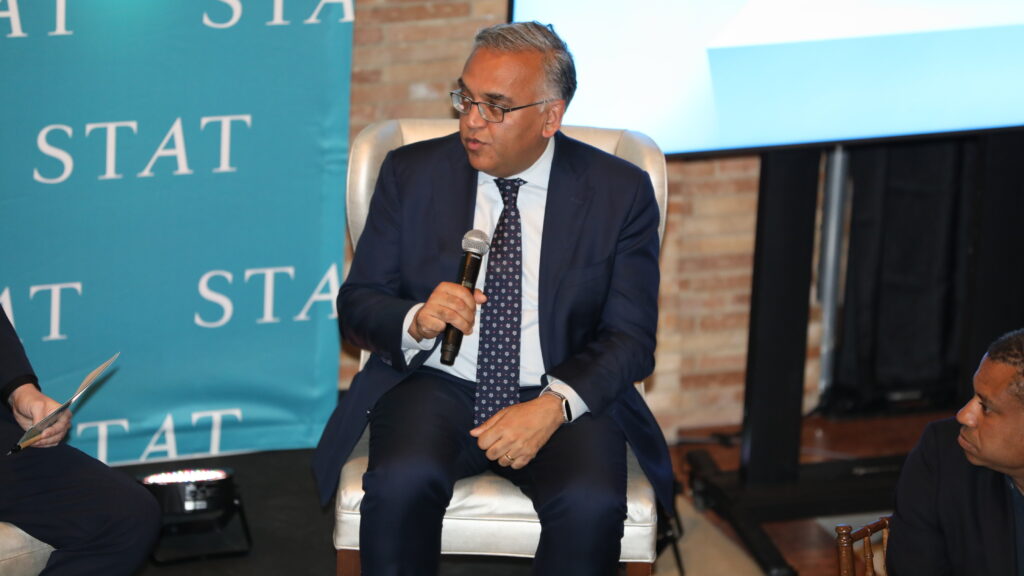On the eve of the expiration date for the federally declared coronavirus public health emergency, White House Covid-19 Response Coordinator Ashish Jha warned that the pandemic is far from over.
“I don’t see this as an end to the pandemic or fighting Covid,” Jha said at a STAT event in Boston on Wednesday. “I see this as a transition out of this emergency phase into a very different phase.”
While emergency policies that allow hospitals to take measures like setting up beds in parking lots are no longer necessary, and the U.S. has come a long way in pandemic preparedness, Jha said that there is still more work to be done. “Are we better prepared? Yes,” he said. “Are we where we need to be? No.”
Jha was speaking as a member of the 2023 STATUS List, which recognized 46 leaders and newsmakers in health, medicine, science. The people who landed on the most recent annual list and were in attendance at the event ranged from Renee Wegrzyn, director of the Advanced Research Projects Agency for Health, a newly formed federal life sciences organization, to Jesse Ehrenfeld, president-elect of the American Medical Association, and Toyin Ajayi, co-founder and CEO of health tech startup Cityblock Health.
Asked about the most surprising challenges the U.S. has faced during the past three years of the pandemic, Jha cited the level of politicization surrounding the virus and vast amounts of medical misinformation. As one example, he noted that social media has prompted a disproportionate amount of attention on rebound cases of Covid among people who’d taken Paxlovid.
“I think there’s been a massive amount of bad information out there,” Jha told STAT senior writer Matthew Herper. “How do you rebuild trust in public health? How do you rebuild trust in vaccines?”
Another unfortunate surprise, Jha said, is “how hard it has been to galvanize the forces to do the things that we know we can do to really get Covid under control.”
That includes building better vaccine platforms and investing in bringing more rapid tests to market, Jha said.
Jha has been tight-lipped about his future after the White House finishes setting up the Office of Pandemic Preparedness and Response Policy that Congress mandated in December. But he noted that throughout his career, he’s always had a wide range of interests.
“For three years, I have thought about nothing but one virus,” Jha said. Now he’s looking forward to thinking about the broader issues the pandemic has raised, including the decline in U.S. life expectancy and social determinants of health.


